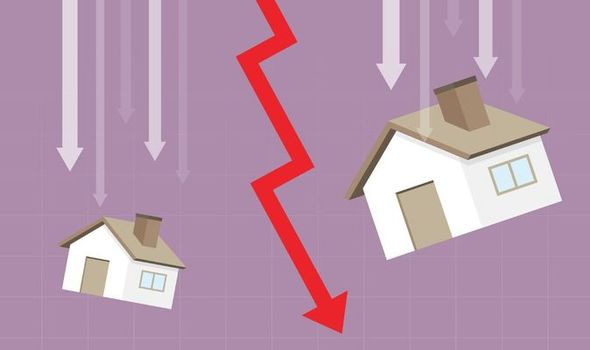UK House Prices Fall For The First Time In 15 Months (October 2022)
In October, home prices in the United Kingdom declined for the first time in more than a year, as the Liz Truss government’s mini-budget caused havoc on the property sector, driving mortgage rates considerably higher.
According to Nationwide Building Society’s latest monthly report, the average price of a house fell 0.9% from September to £268,282, the first glimpse of a turbulent time. This was the greatest fall since June 2020, and the first since July 2021. The yearly growth rate fell from 9.5% to 7.2%.
Robert Gardner, the Nationwide chief economist, said: “The market has undoubtedly been impacted by the turmoil after the mini-budget, which led to a sharp rise in market interest rates. Higher borrowing costs have added to stretched housing affordability at a time when household finances are already under pressure from high inflation.”
Based on an average interest rate of 5.5%, a first-time buyer (FTB) earning the average income and wanting to buy a typical FTB property with a 20% deposit would see their monthly mortgage payment grow from 34% of take-home pay to 45%. This is similar to the ratio prevailing before the financial crisis, Gardner said.
Mark Harris, CEO of mortgage broker SPF Private Clients, said the financial markets’ recovery after Truss’ resignation has begun to trickle down to the mortgage industry.
“Some fixed-rate mortgage pricing has dropped accordingly over the past few days, with Barclays, HSBC and Santander, among others, reducing their rates,” he said.
However, interest rates are projected to climb higher as the Bank of England attempts to cool skyrocketing UK inflation, which is at a 40-year high of 10.1%. On Thursday, the Bank’s monetary policy committee is expected to increase interest rates by 0.75 percentage points to 3%.
A rate increase of this magnitude may result in mortgage holders on variable rate mortgages spending hundreds of pounds more in repayments every year, depending on the amount of their loan. “While anyone on a fixed-term deal is currently protected from rate rises, those approaching the end of their deal are in for a nasty shock when it’s time to re-mortgage,” said Myron Jobson, a senior personal finance analyst at trading platform Interactive Investor.
According to figures from the banking association UK Finance, 1.8 million mortgage deals are set to expire next year and will need to be refinanced at a time when interest rates are rising. The Bank of England’s interest rates are unlikely to climb over 5%, according to deputy governor Ben Broadbent, who warned of a “pretty material” blow to the economy if they did. Financial markets are already factoring in a 4.5% high in UK interest rates.
Martin Beck, the chief economic adviser to the independent forecaster EY Item Club, said: “October’s fall [in house prices] could likely be a sign of things to come. Although mortgage rates have retreated from the highs seen just after the mini-budget, they’re still elevated compared with early to mid-September.”
He said that, for example, the standard variable rate on a Nationwide mortgage is 5.24%, compared with 3.74% before the mini-budget. “Cost of living pressures remain challenging, and face being exacerbated by tax rises and public spending restraint in November’s autumn statement, and consumer confidence is notably depressed,” he added.
Nationwide expects the housing market to weaken in the next quarters due to high inflation and rising interest rates.
Some analysts have predicted that housing prices will decrease dramatically next year. Jones Lang Lasalle, a property business, stated this week that home price collapses are uncommon in the UK and forecasted a 6% decline in prices in 2023.
Tom Bill, the head of UK residential research at Knight Frank, said: “Demand will come under more pressure next year as a growing number of people come to the end of fixed-rate deals and mortgage offers made earlier this year when rates were lower begin to lapse.
“Government stability will help underpin transactions but we are witnessing a fundamental shift in rates take place after 13 years of ultra-low borrowing costs that will lead to price declines. Low unemployment, tight supply and well capitalised lenders mean we should avoid the kind of double-digit falls seen during the financial crisis.”
Online sources: theguardian.com, bbc.co.uk
All opinions and views expressed or suggested by the Digital Zeitgeist are not necessarily the same opinions and views held by or suggested by GPM-Invest plus any and all partners, affiliates, parties, or third parties of GPM-Invest. Any type of media distributed by GPM-Invest IS NOT financial advice. Please seek advice from a professional financial advisor

